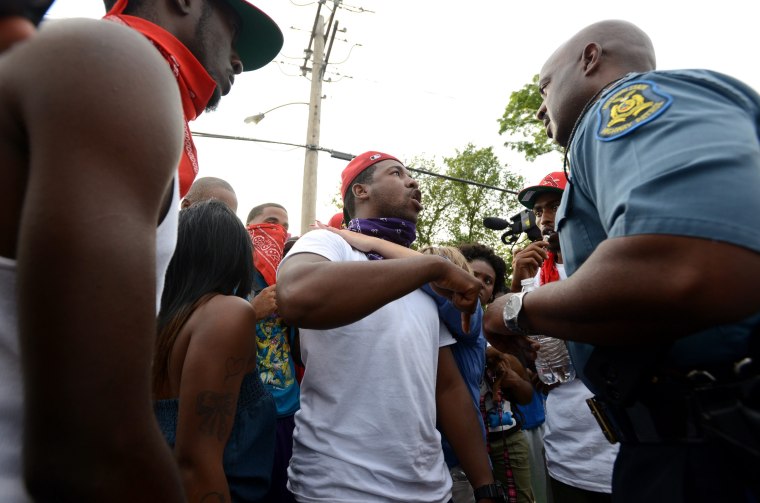When a preventable problem occurs, it's only natural for policymakers to at least consider possible solutions. And this week, one of the questions on the minds of many is simple: How we can prevent the next Ferguson?
While much of the work, in the St. Louis area and elsewhere, will fall on local and state officials, many federal policymakers this week have decided they have a role to play in this conversation, too.
Civil rights leaders have cited Ferguson as evidence of a need for a renewed focus on the part of Obama and Congress on addressing racial inequality, while others have seized on the use of military tactics and weaponry by police as an issue that Washington must tackle. A senior Senate Democratic aide was deferential to the White House on strategies for possible legislative actions in the wake of Ferguson, but Senate Majority Leader Harry Reid, a former police officer, issued a statement signaling the Senate would be paying attention.
In the U.S. House, three Democratic lawmakers -- House Judiciary Committee members John Conyers (D-Mich.), Bobby Scott (D-Va.), and Steve Cohen (D-Tenn.) -- formally requested congressional scrutiny on police violence.
Around the same time, Democratic Rep. Hank Johnson of Georgia announced new legislation, called the "Stop Militarizing Law Enforcement Act," which would "prevent the transfer of certain military-grade equipment from the Department of Defense to local law enforcement agencies. That includes some automatic weapons, armored vehicles, armored drones, silencers and flash-bang or stun grenades."
Johnson said the bill would be unveiled next month when Congress returns from its August recess. It's too soon to say how many co-sponsors it will have.
What's more, while at this point only Democrats have called for specific congressional action, there's at least the possibility that the measures may get bipartisan backing once lawmakers return to work.
The good news is, policymakers have a menu of options to choose from.
At the federal level, much of the discussion will likely focus on the transfer of materials and equipment from the Pentagon, Justice Department, and Department of Homeland Security to local law enforcement.
But locally, Rebecca Leber highlights some related worthwhile ideas on preventing the next Ferguson, including revamped training and expanding the use of dashboard cameras on police cars.
It's an overdue conversation. It shouldn't have taken a crisis to get the discussion rolling, but at a minimum, it's heartening to see the dialogue begin anew.
